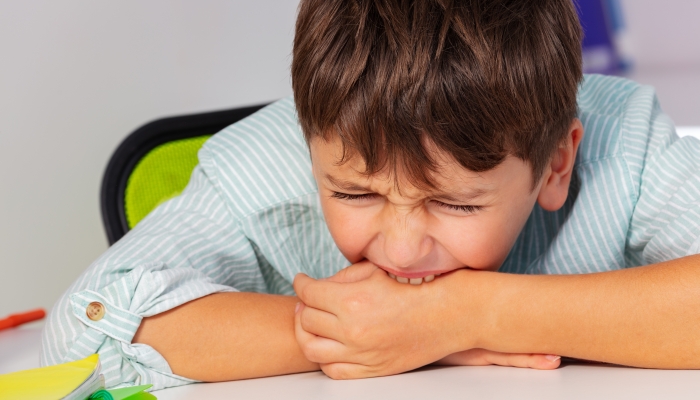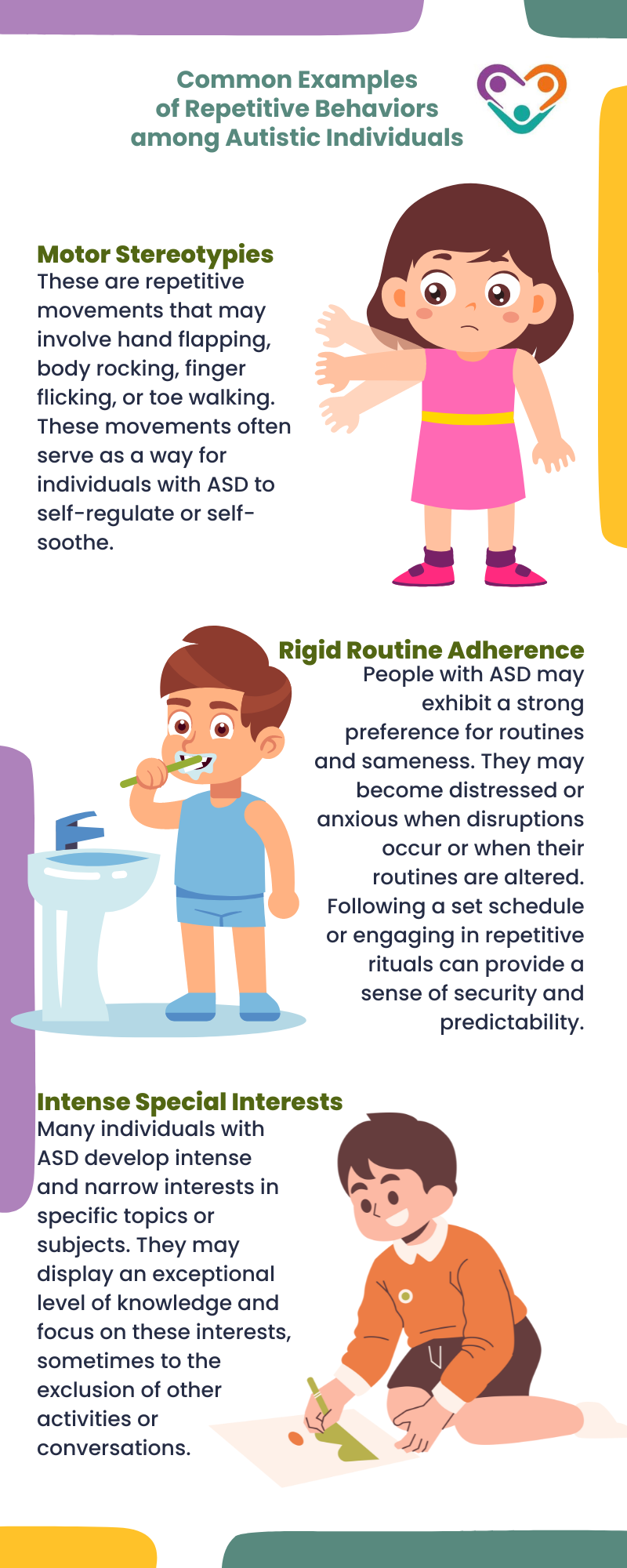Top 10 insights about how an Autism Therapist supports social growth in autism
Top 10 insights about how an Autism Therapist supports social growth in autism
Blog Article
Comprehending the Impact of Behavioral Autism on Every Day Life and Social Interactions
You may not realize how deeply behavior autism affects daily life and social communications. People on the spectrum frequently browse a globe loaded with communication hurdles and sensory overload. These obstacles can lead to aggravation and isolation, influencing their connections and total health.
Defining Behavioral Autism and Its Features
Behavior autism, commonly described as autism spectrum disorder (ASD), encompasses a series of conditions defined by obstacles in social interaction, communication, and recurring habits. You might discover that people with ASD typically battle to translate social hints, which can bring about misconceptions in discussions. They might locate it tough to develop eye contact or participate in little talk, making social scenarios really feel frustrating.
Interaction troubles can show up in numerous ways, from postponed speech development to a choice for making use of less words. By recognizing these traits, you can promote an environment that advertises approval and urges reliable interaction, aiding people with autism prosper in their everyday interactions.
The Range of Autism: Recognizing Variability in Behavior
Autism range disorder (ASD) isn't a one-size-fits-all medical diagnosis; it varies extensively among people. You might come across people who are highly verbal and involve easily in discussions, while others might choose singular activities or communicate non-verbally.
Moreover, the means people with ASD react to sensory input can differ greatly; some may be overwhelmed by loud sounds or brilliant lights, whereas others prosper in promoting settings. The range additionally consists of distinctions in social interactions; some people may battle to translate social hints, while others browse social settings with relative ease. Recognizing this variability is essential, as it aids you appreciate everyone's distinct experience and tailor support to their particular needs, fostering an extra inclusive atmosphere for every person.
Interaction Challenges Dealt With by People With Autism
When you interact with individuals on the autism spectrum, you might observe their special interaction obstacles. They frequently encounter troubles with both spoken and nonverbal hints, which can impact their social communications. Comprehending these obstacles is essential for promoting much better links and support.

Verbal Interaction Problems
Many people on the autism spectrum experience verbal interaction troubles that can considerably affect their day-to-day communications. Your tone, speed, or quantity may not straighten with social expectations, triggering others to misinterpret your intentions. Acknowledging these obstacles can assist you and your support network establish techniques to enhance interaction and promote far better connections with others in your everyday life.
Nonverbal Communication Barriers
Verbal interaction isn't the only challenge individuals on the autism range face; nonverbal communication barriers can be equally as substantial. You may find it difficult to interpret body language, face expressions, and eye get in touch with, which are important for effective interaction. These obstacles can lead to misconceptions or false impressions of social cues, making communications really feel complex or overwhelming. You might have a hard time to share your own emotions via nonverbal means, leaving others unsure of your feelings or purposes. This detach can develop sensations of seclusion and disappointment. Identifying these obstacles is crucial for fostering understanding and empathy in your interactions. By addressing nonverbal communication, you can discover approaches to improve your social experiences and boost your overall quality of life.
Social Interaction Effects
Social communications can frequently really feel frustrating due to the distinct communication challenges encountered by people with autism. Recognizing these difficulties can help you find approaches to boost communication, such as practicing social skills in secure settings or utilizing visual aids. Understanding your requirements permits you to navigate social communications with higher confidence and convenience.
Social Communication and Relationship Building in Autism
While structure partnerships can be challenging for individuals with autism, recognizing their one-of-a-kind point of views and interaction styles can foster purposeful links. You might see that lots of people on the spectrum prefer straight communication and may fight with social hints or little talk. By being straightforward in your communications, you can help create an atmosphere where they feel comfortable.
Involving in shared interests can likewise serve as a bridge to deeper connections. Whether it's a pastime, a favored program, or a shared interest, these usual threads can open up doors to relationship.
Every Day Life Routine: Navigating Obstacles and Approaches
Navigating everyday life regimens can be specifically testing for people with autism, specifically when unexpected modifications happen. To navigate these obstacles, consider executing visual routines or lists.
Establishing a routine that consists of sensory breaks can also be beneficial. This assists create an understanding atmosphere.
Lastly, method mindfulness techniques to manage anxiety and stress and anxiety. Easy breathing workouts or basing methods can make a considerable difference. By incorporating these methods, you can enhance your daily regimen and lessen disturbances, making life feel extra convenient.
Staminas and Abilities of People on the Autism Range
Understanding everyday life regimens is just one element of the autism experience. Many individuals on the autism spectrum have remarkable strengths and abilities that establish them apart.
Moreover, your memory abilities typically beam, particularly in locations of rate of interest. Autism Behavioral Therapy. This flair for maintaining details can make you an important source in areas like scientific research, modern technology, or art. You may also display strong visual reasoning, enabling you to picture complicated concepts and address issues artistically
In addition, your unique point of view on the globe can cultivate empathy and understanding in others, enhancing social interactions. Accepting these staminas not just improves your self-confidence however also helps others appreciate the diverse talents you bring to the table.
Producing Comprehensive Environments for People With Autism
Producing inclusive settings for people with autism begins with designing sensory-friendly spaces that deal with their distinct needs. You can additionally promote possibilities for social interaction, assisting to build relationships and links. By making these modifications, you'll add to a more welcoming environment for everybody.
Designing Sensory-Friendly Spaces
While creating sensory-friendly spaces, it's vital to reflect on the special requirements of people with autism. Start by selecting soothing colors and soft illumination to create a soothing atmosphere. Include quiet zones where people can pull away and reenergize when bewildered. You'll intend to minimize loud sounds and disturbances, utilizing soundproof materials or white noise equipments to assist maintain harmony. Think about responsive components pop over to this site like soft textiles or fidget-friendly objects that can provide comfort. Establish that spaces are flexible, enabling easy reformation to fit various tasks. Consist of visual timetables or clear signage to help people browse the room with confidence. By attentively incorporating these aspects, you can produce a welcoming ambience that supports sensory demands and advertises overall wellness.
Promoting Social Interaction Opportunities
Designing sensory-friendly navigate to this website areas not just addresses private comfort yet also sets the phase for purposeful social interactions among individuals with autism. Encourage peer mentoring, matching individuals with autism with helpful peers that can direct them via social situations. By applying these approaches, you can boost social opportunities, aiding people with autism develop relationships and reinforce their social abilities in a risk-free, welcoming environment.

Often Asked Concerns
Exactly How Can Friends Assistance Someone With Behavioral Autism?
You can support a good friend with behavioral autism by being patient, listening proactively, and respecting their boundaries. Participate in activities they delight in, communicate openly, and produce a comfortable environment where they feel valued and recognized.
What Resources Are Available for Moms And Dads of Kid With Autism?
You can explore various sources for moms and dads of kids with autism, consisting of support groups, instructional internet sites, and neighborhood neighborhood services. Linking with various other moms and dads can likewise offer important understandings and shared experiences to assist navigate challenges.
Can Behavioral Autism Adjustment Gradually?

Yes, behavior autism can change in time. You might discover shifts in communication, social skills, and behavior as your child expands. Early treatment and assistance frequently play important functions in these developmental changes.
Just How Do Sensory Level Of Sensitivities Impact Day-to-day Live?
Sensory level of sensitivities can make daily experiences overwhelming. You might fight with loud noises or bright lights, bring about stress and anxiety or evasion. Locating atmospheres that accommodate your needs can greatly boost your convenience and general daily life.
What Are Usual Misconceptions About Behavioral Autism?
You may believe behavioral autism just impacts communication abilities, however it's more facility. Numerous think individuals do not have empathy or knowledge, which isn't real. Recognizing these false impressions assists foster acceptance and support for those on the range.
Behavioral autism, frequently referred to you can check here as autism range disorder (ASD), incorporates a variety of problems characterized by obstacles in social interaction, interaction, and repetitive actions.Social interactions can usually feel frustrating due to the unique interaction challenges dealt with by people with autism.Designing sensory-friendly areas not just addresses individual comfort however also sets the stage for significant social interactions among individuals with autism. Urge peer mentoring, pairing individuals with autism with encouraging peers that can lead them with social scenarios. By applying these strategies, you can boost social possibilities, helping individuals with autism construct relationships and strengthen their social skills in a risk-free, inviting setting.
Report this page